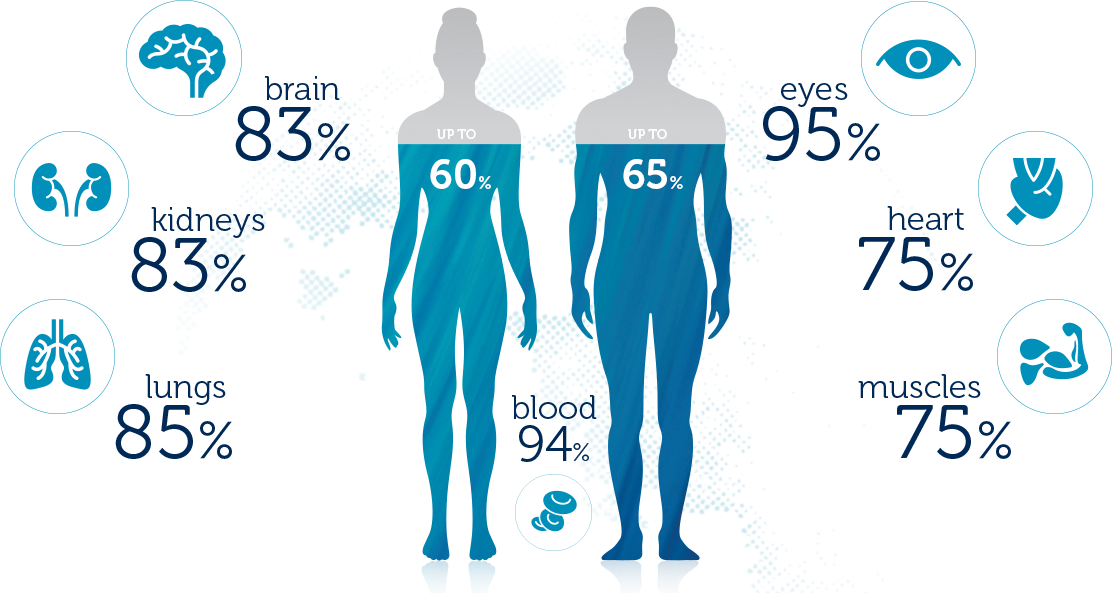How much water is in the human body
Water : Human body's major component
On average, the body of an adult human being contains 60% water. Most of the water in the human body is contained inside our cells.
The total amount of water in our body is found in three main locations: within our cells (two-thirds of the water), in the space between our cells and in our blood (one-third of the water). For example, a 70-kg man is made up of about 42L of total water.
Also, the more muscular a body is, the more water it contains. Conversely, the more fat in the body, the less water the body contains – as body fat has little water.
Also, all our vital organs contain different amounts of water: the brain, the lungs, the heart, the liver and the kidneys contain a large quantity of water – between 65 to 85% depending on the organ (2), while bones contain less water (but still 31%!).
Sources: (1) Wang et al. (1996). Am J Clin Nut 69 : 833-841 ; (2) Mitchell et al. The Journal of Biological Chemistry, 1945: 625-637.
From : http://www.nestle-waters.com


No comments:
Post a Comment